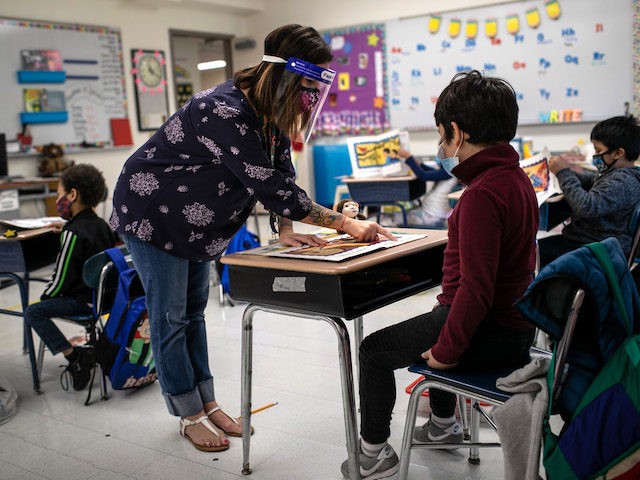A landmark report published by the National Council on Teacher Quality (NCTQ) revealed an “outsized” number of elementary teacher candidates are failing state licensure tests, particularly in the primary subject areas of English, math, science, and social studies.
NCTQ observed:
An outsized number of elementary teacher candidates struggle to pass their state licensing tests, especially in the content knowledge (English language arts, mathematics, science, and social studies), defined by states as minimally necessary for the job. In many states, less than half of all test takers pass on their first try, with even lower pass rates reported for candidates of color.
The report states much of the data collected that documents the pass rates by schools preparing teachers for classrooms have “never been made public.”
“Neither states nor programs have made public ‘first-attempt’ pass rates (except in rare instances), even though it is common practice in other professions and serves to motivate all programs to take the tests seriously,” NCTQ revealed. “First-time pass rates speak to the efficiency and thoroughness of programs’ course of study.”
NCTQ provides the data for teacher licensure pass rates for 38 states and the District of Columbia here.
“There are startling differences in pass rates among institutions within the same state,” the organization wrote in its executive summary. “On average, there is a 56 percentage point gap between the highest and lowest performing institutions.”
NCTQ continued:
The most important revelation emerging from this new data may not be the remarkable variation among institutional pass rates in the same state (there’s an average 56 percentage point gap between the highest and lowest institutions in a state on candidates’ first attempt). Instead, it is the fact that neither the backgrounds of the candidates nor institutional characteristics fully explain the variances. [sic]
The group stated the “likely explanation” for the stronger performances of teacher candidates is the “quality of preparation, including both the support provided and the degree to which coursework is aligned with the content.”
According to NCTQ, the average first-attempt licensure test pass rate for states with even strong testing systems is only 45 percent.
The organization, which serves to provide research and guidance to the teaching profession, noted that low pass rates for state licensure tests often generate claims of “test bias,” that the tests are irrelevant to “classroom effectiveness,” and that they create “teacher shortages.”
NCTQ continued, nevertheless:
While test publishers and states must aggressively address issues of test bias, assertions about the irrelevance of the tests are largely unfounded. Licensure tests provide essential data on the quality of preparation provided by teacher preparation programs (as well as their broader institutions) and point toward successful programs from which to learn. Low pass rates have also created fertile ground for an erroneous narrative that test performance offers no insight into future teacher effectiveness, while in fact research has largely found that teachers’ test performance predicts their classroom performance.
“The overwhelming majority of research studies found a positive relationship between licensure tests and student outcomes,” the organization observed, noting, however, that some state officials, “when faced with persistent evidence of low pass rates,” have either “lowered or even eliminated tests of content knowledge, despite the broad—and obvious—agreement that teachers cannot teach what they do not know.”
“These actions are band-aid solutions that eliminate our ability to identify and fix a problem and instead shift the burden of inadequate content knowledge onto classrooms,” NCTQ asserted.
The data also revealed 22 percent of all teacher license test takers who fail the first time do not retake the test. That statistic is 30 percent for “test takers of color.”
NCTQ stated:
Without this data, teacher preparation programs have been able to attribute chronically low pass rates to factors beyond their control, instead of following the steps of more successful peer institutions and directing aspiring teachers toward courses covering the content knowledge needed to teach elementary grades.

COMMENTS
Please let us know if you're having issues with commenting.